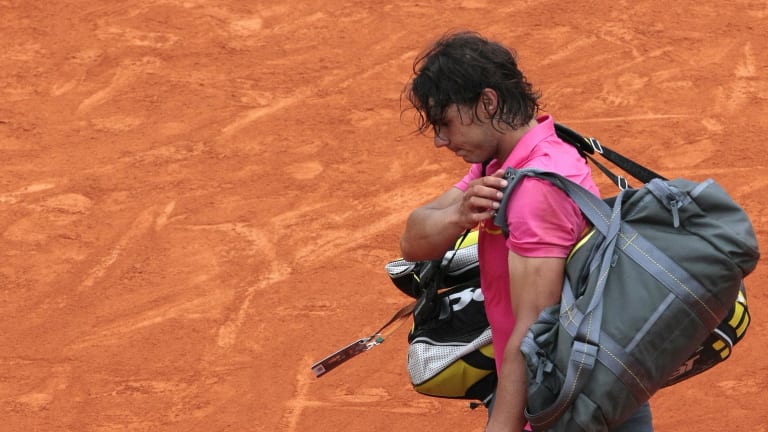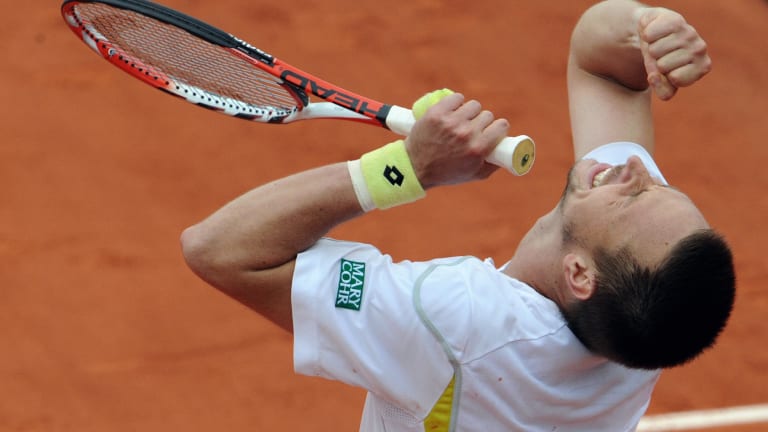Roland Garros
What does Soderling's once-epochal upset of Nadal mean 10 years later?
By May 30, 2019Roland Garros
Roland Garros says tennis fans must have their tickets stored on official tournament app
By Mar 12, 2024Roland Garros
Victor Wembanyama, surefire No. 1 pick in NBA draft, bids adieu to France in game at Roland Garros
By Jun 15, 2023Roland Garros
Analysis: Novak Djokovic has 23 Slams, so is he the GOAT? He leaves that debate to others
By Jun 12, 2023Roland Garros
Novak Djokovic returns to ATP No. 1 with his 23rd Slam title; Iga Swiatek stays at WTA No. 1
By Jun 12, 2023Roland Garros
Novak Djokovic’s 23rd Grand Slam win had all the hallmarks of what brought him to this record-breaking pinnacle
By Jun 11, 2023Roland Garros
Novak Djokovic wins his 23rd Grand Slam title by beating Casper Ruud in the Roland Garros final
By Jun 11, 2023Roland Garros
Where, when and how Novak Djokovic won each of his 23 Grand Slam titles
By Jun 11, 2023Roland Garros
Novak Djokovic moves up the list of most Grand Slam titles in tennis history with No. 23
By Jun 11, 2023Roland Garros
History: Novak Djokovic passes Rafael Nadal with record 23rd Grand Slam title at Roland Garros
By Jun 11, 2023Roland Garros
What does Soderling's once-epochal upset of Nadal mean 10 years later?
It’s still among the first, if not the first, match that comes to mind when we make our lists of the biggest upsets in tennis history. But it has also lost some of its shock value, for various reasons.
Published May 30, 2019
Advertising

What does Soderling's once-epochal upset of Nadal mean 10 years later?
© AFP/Getty Images
Advertising

What does Soderling's once-epochal upset of Nadal mean 10 years later?
© AFP/Getty Images
Advertising

What does Soderling's once-epochal upset of Nadal mean 10 years later?